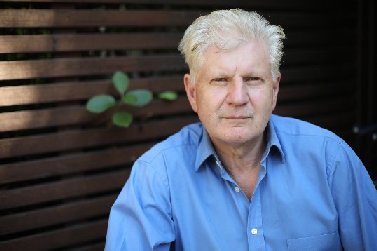The website for writers
- Choosing a service
- What's New
- News Review
- News Review 2024
- News Review 2023
- News Review 2022
- News Review 2021
- News Review 2020
- News Review 2019
- News Review 2018
- News Review 2017
- News Review 2016
- News Review 2015
- News Review 2014
- News Review 2013
- News Review 2012
- News Review 2011
- News Review 2010
- News Review 2009
- News Review 2008
- News Review 2007
- News Review 2006
- News Review 2005
- What's new
- What's New 2024
- What's New 2023
- What's New 2022
- What's New 2021
- What's New 2020
- What's New 2019
- What’s new 2018
- What’s new 2017
- What’s new 2016
- What’s new 2015
- What’s new 2014
- What’s new 2013
- What’s new 2012
- What’s new 2011
- What’s new 2010
- What’s new 2009
- What’s new 2008
- What’s new 2007
- What’s new 2006
- What’s new 2005
- What’s new 2004
- What’s new 2003
- Comment
- Regular features
- A publisher's view
- News Review
- Getting Published
- Editorial Services
- Our Services for Writers
- Choosing a service
- Copy Editing
- Editor's Report Plus
- Editor's report
- Children's Editorial Services
- English Language editing service
- The Cutting Edit
- Developmental editing
- Writer's Edit service
- Submission critique
- Manuscript polishing service
- Rewriting
- Reader's report
- Synopsis-writing
- Blurb-writing
- Poetry Critique
- Poetry Collection Editing
- Scriptwriting service
- Proof-reading
- Indexing
- Contract vetting
- PhD editing
- Manuscript typing
- Self-publishing
- Advice for writers
- Editorial Services
- Listings
- Agents
- Links to sites
- Writers' organisations
- Agents' associations
- Publishers' & Booksellers' Organisations
- Writers’ online services
- Writers’ web resources
- Poetry sites
- Picture Libraries
- Writers’ Software
- Writers’ magazines and sites
- Bursaries & Scholarships
- Inspiration
- Magazines & Writing Sites
- Play Publishers
- Publishers References
- UK Arts Organisations
- Writing opportunities
- Opportunities 2024
- Opportunities 2023
- Opportunities 2022
- Opportunities 2021
- Opportunities 2020
- Opportunities 2019
- Opportunities 2018
- Opportunities 2017
- Opportunities 2016
- Opportunities 2015
- Opportunities 2014
- Opportunities 2013
- Opportunities 2012
- Opportunities 2011
- Opportunities 2010
- Opportunities 2009
- Opportunities 2008
- Opportunities 2007
- Opportunities 2006
- Opportunities 2005
- Glossaries
- Magazine
- Resources
- Inside Publishing
- Advances & Royalties
- Publishers and Agents
- Subsidiary Rights
- English Language Publishing World
- Marketing
- Frankfurt Book Fair
- Sales Department
- Production
- Publishing & pricing
- Distribution
- Book Clubs & direct mail
- Direct selling
- Print on Demand
- Copyright
- Children's publishing
- Copy editing
- Vanity Publishing
- Creative Commons
- Writer/Publisher
- Self-publishing Guide
- 1 - What is Self-publishing?
- 2 - Choose Your Self-publishing Route
- 3 - Ebooks: How to Sell on Amazon
- 4 - Ebooks: Formatting for Kindle
- 5 - Ebooks: Distributing to Other Eretailers
- 6 - Cover Design Know-how
- 7 - Print On Demand for Indies
- 8 - Ebooks - Pricing Strategies for Indie Authors
- 9 - Marketing and Promotion for Indie Authors: Online
- 10 - Traditional marketing techniques
- Essential Guide to Writing for Children
- Michael Legat's Factsheets
- What Do Publishers Want?
- Write about What You Know
- Literary Agents
- Research
- Submissions
- Spelling, Punctuation and Grammar
- Plotting the Novel
- The First and Last Pages
- Will I be Famous? Will I be Rich?
- The Qualities that Make a Writer
- Articles, Non Fiction and the Market
- Children's Books
- Useful Techniques for the Novelist
- Revision
- Libel
- Copyright
- Plagiarism
- PLR & Miscellaneous Matters
- Contracts
- An Editor's Advice
- Genre Writing
- Tips for writers
- Other resources for writers
- Health Hazards
- Writers Bookstall
- General Guides
- Writing Guides
- Fiction Writing
- Genre Fiction Writing
- Non-Fiction Writing
- Plays and Script-writing
- Other Types of Writing
- Educational and Academic Writing
- ‘Creative’ Writing
- Personal Accounts
- Selling your work
- The Business of Publishing
- Internet and the Writer
- Software
- Writers' Software
- Writers Reference
- Inside Publishing
- Copy editing
- Payment & ordering
- NEW SERIES
- Our Services for Writers
Home » Writing
How WritersServices can help you...
Quote
Popular content
Today's:
- Metamorphosis Literary Agency
- Forums
- Cyril Connolly | 'I shall christen this style the Mandarin, since it is beloved by ...
- UK Literary Agent listing
- Writing Opportunities
- Freelance Writing for Magazines and Newspapers: Breaking in without Selling out (Harperresource Book) - Marcia Yudkin
- Lady Of The Mercians - Penny Ingham
- Oxford Dictionary of English -
- A Short Guide to Writing About History (The Short Guide Series) - Richard A. Marius (late), Melvin E. Page
- International Scripts
All time:
Last viewed:
- 'Monogamy is hard, in writing as in life!'
- The Bookseller - News - Text-generating AI claims writer's block 'could soon be a thing of the past for young authors'
- 18 June 2012 - What's new
- Lawrence Ferlinghetti, Peerless Poet-Publisher, Dies at 101
- Health Hazards
- StarOffice 6.0 -
- AirTeamImages
- Frankfurt Book Fair 2017: With No Single Big Book, Multiple Memoirs Steal the Show
- Booklife: Strategies and Survival Tips for the 21st Century Writer - Jeff VanderMeer
- Editors and publishers 'wait for writers to come to them with manuscripts that are fully formed'
- Crowdfunding Authors' Books Could Save Publishing
- What’s the matter with ebooks? In our praise for print, we forget the great virtues of digital formats. | USAPP
- The delicate relationship between grief and fanfiction, explained by a psychologist - Vox
- Distribution | Inside Publishing
- Streaming of books threatens to sell readers down the river | Books | The Observer
Return to top of page
Hosting, domain, DNS and email by XhostTellnet Ltd, web design by d7 enterprises Ltd
Copyright © 2001-2024 WritersServices.com
Copyright © 2001-2024 WritersServices.com
Copyright © 2024 . The website for writers "Helping writers get published" - over 6000 pages of free information for writers...
Please note we use cookies to help deliver the site to you - see our Privacy Policy for more information
Please note we use cookies to help deliver the site to you - see our Privacy Policy for more information


 People often ask how I start work on a novel.
People often ask how I start work on a novel.